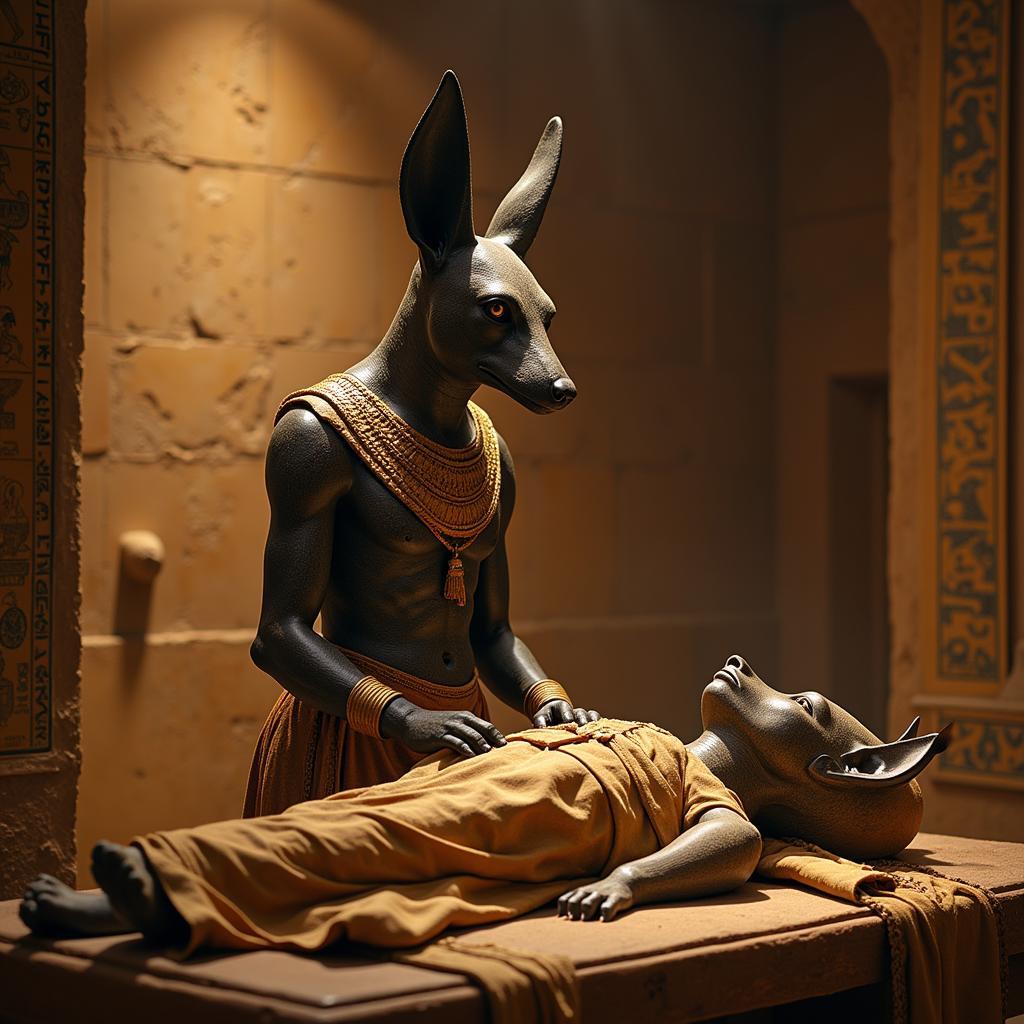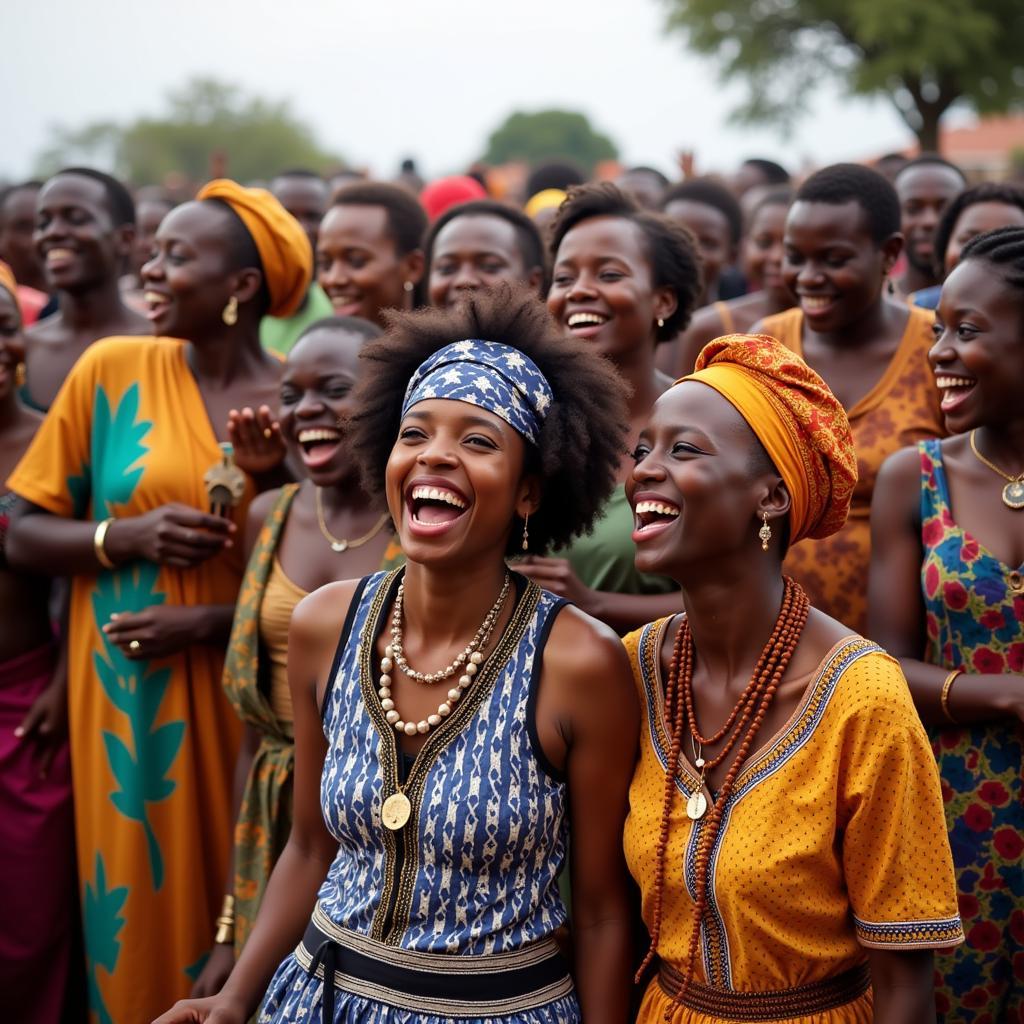African Gods and Goddesses List: Exploring a Rich Pantheon
African gods and goddesses represent a diverse and fascinating tapestry of beliefs and traditions across the continent. From powerful deities of the sky to benevolent spirits of the earth, these figures play a vital role in understanding African spirituality and culture. This article delves into a comprehensive African Gods And Goddesses List, exploring their significance and influence.
African gods and goddesses are often deeply connected to the natural world, reflecting the close relationship between humans and their environment in many African cultures. Many deities are associated with specific elements, animals, or natural phenomena. For example, some gods control rain and fertility, while others embody the power of the sun or the wisdom of the ancestors. These connections highlight the importance of nature in shaping African spiritual beliefs.
Key Deities in the African Pantheon
Let’s explore some of the most prominent figures in the african gods and goddesses list:
-
Anubis (Egypt): The jackal-headed god of mummification and the afterlife, guiding souls to the underworld.
-
Oshun (Yoruba): The goddess of love, beauty, and freshwater, revered for her sensuality and compassion.
-
Shango (Yoruba): The god of thunder and lightning, a powerful and charismatic deity associated with fire and masculinity.
-
Odinani (Igbo): A complex belief system with a supreme being (Chukwu) and numerous lesser deities, emphasizing ethical living and ancestor veneration.
These are just a few examples, and the specific deities worshipped vary widely across different ethnic groups and regions. African gods and goddesses pdf resources can provide a more in-depth understanding of regional pantheons.
What are the roles of African Gods and Goddesses?
African gods and goddesses serve a variety of important roles:
-
Explaining the world: They provide explanations for natural phenomena, human origins, and the mysteries of life and death.
-
Maintaining order: They enforce moral codes and ensure the balance of the universe.
-
Interceding on behalf of humans: People offer prayers and sacrifices to the gods, seeking their blessings and protection.
-
Connecting with ancestors: Many African religions emphasize the importance of ancestor veneration, believing that the spirits of the deceased can influence the living.
The rich oral traditions of African cultures preserve the stories and myths surrounding these deities, passing down valuable knowledge and wisdom through generations. African folk lore mean exploring these narratives offers further insight into the cultural significance of these beliefs.
How do African religions incorporate these deities into daily life?
African religions integrate these deities into everyday life through various practices:
-
Rituals and ceremonies: Special occasions and festivals are dedicated to honoring specific gods and goddesses.
-
Offerings and sacrifices: People present gifts to the deities as a sign of respect and gratitude.
-
Divination and healing: Priests and priestesses communicate with the gods to seek guidance and healing for the community.
-
Storytelling and art: Myths and legends about the gods are shared through oral traditions, music, dance, and visual art.
 Anubis, Egyptian God of Mummification
Anubis, Egyptian God of Mummification
“The stories of the gods are not just tales, but living embodiments of our values and history,” says Dr. Abimbola Adebayo, a renowned scholar of Yoruba religion. “They teach us about our place in the world and our responsibilities to one another.”
20 must-read african fantasy novels often draw inspiration from these rich mythologies, reimagining these powerful figures in new and exciting ways. Exploring this genre can be a compelling way to engage with the enduring power of these ancient beliefs.
Why is understanding African Gods and Goddesses important?
Understanding african gods and goddesses is crucial for appreciating the richness and complexity of African cultures. It offers a glimpse into the diverse spiritual beliefs and practices that have shaped the continent’s history and continue to influence its present.
“By learning about these deities, we gain a deeper understanding of the values, traditions, and worldviews of different African communities,” explains Professor Chinua Achebe, a leading expert in African literature and culture. “It opens a window into the soul of a continent.”
In conclusion, exploring the african gods and goddesses list offers a fascinating journey into a world of rich mythology, spiritual beliefs, and cultural traditions. These deities play a crucial role in shaping African identities and understanding the continent’s diverse heritage. African fantasy books provide a modern interpretation of these ancient beliefs, further highlighting their enduring relevance.
Need assistance? Contact us 24/7: Phone: +255768904061, Email: kaka.mag@gmail.com, or visit us at Mbarali DC Mawindi, Kangaga, Tanzania.

